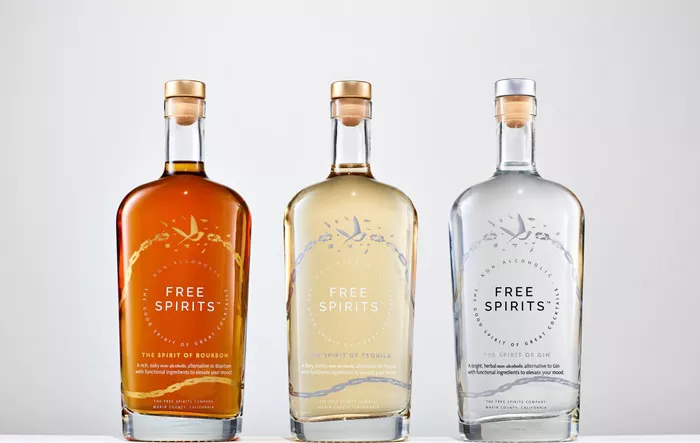The question “Is Cognac a whiskey?” often arises among spirits enthusiasts and novices alike. While both Cognac and whiskey fall under the broad category of distilled spirits, they originate from different regions, undergo distinct production processes, and possess unique flavor profiles. In this article, we will delve into the characteristics of Cognac and whiskey, debunk common misconceptions, and elucidate the differences between these two beloved spirits.
Defining Cognac and Whiskey
Before delving into the debate, it is essential to understand the fundamental characteristics of Cognac and whiskey. Cognac is a type of brandy produced in the Cognac region of France, primarily from white wine grapes such as Ugni Blanc. On the other hand, whiskey, spelled with or without the ‘e’ depending on the region of production, is a distilled alcoholic beverage made from fermented grain mash. Common grains used in whiskey production include barley, corn, rye, and wheat.
Production Process: Unveiling the Dissimilarities
The production processes of Cognac and whiskey are starkly different, contributing to their distinct flavor profiles and characteristics. Cognac undergoes a meticulous and regulated production process, starting with the fermentation of grape juice followed by double distillation in copper pot stills. The distilled liquid is then aged in French oak barrels for a minimum of two years, yielding the rich and complex flavors characteristic of Cognac.
Conversely, whiskey production involves several variations depending on the type of whiskey being crafted, such as Scotch, bourbon, or rye. However, the basic process involves mashing grains, fermenting the mash, distilling the liquid, and aging it in wooden barrels. Unlike Cognac, whiskey can be aged in various types of barrels, including oak, which contributes to its diverse flavor profile.
Terroir: Emphasizing Regional Influence
One significant aspect that sets Cognac apart from whiskey is its strong connection to terroir. Terroir refers to the environmental factors that influence the characteristics of agricultural products, including soil, climate, and topography. The Cognac region’s unique terroir, characterized by chalky soil and a maritime climate, imparts distinct flavors to the grapes used in Cognac production.
In contrast, while whiskey production can also be influenced by terroir to some extent, it is not as pronounced as in Cognac. Factors such as the type of grain, water source, and barrel aging have a more significant impact on whiskey’s flavor profile compared to the region of production.
See Also: What to Mix with Jack Daniel’s Cinnamon Whiskey?
Legal Classification: Clarifying the Differences
To further differentiate between Cognac and whiskey, it is essential to consider their legal classifications and regulations. Cognac enjoys protected status under French law, with strict regulations governing its production, labeling, and geographical origin. Only spirits produced in the designated Cognac region using approved grape varieties and production methods can bear the name “Cognac.”
In contrast, whiskey production is subject to varying regulations depending on the country of origin. For instance, Scotch whisky must adhere to specific regulations set by the Scotch Whisky Association, including aging for a minimum of three years in oak barrels in Scotland. Similarly, bourbon whiskey must meet criteria outlined in U.S. federal regulations, such as being made from a mash containing at least 51% corn and aged in new charred oak barrels.
Flavor Profile: Distinguishing Characteristics
The flavor profiles of Cognac and whiskey are distinct, reflecting their unique production methods, ingredients, and aging processes. Cognac is renowned for its smoothness, complexity, and notes of fruit, spice, and oak derived from both the grape distillate and barrel aging. The aging process in French oak barrels imparts subtle nuances to Cognac, resulting in a refined and elegant spirit.
In contrast, whiskey exhibits a broader range of flavors, influenced by factors such as grain selection, fermentation, distillation, and aging conditions. Scotch whisky often features flavors ranging from smoky and peaty notes in Islay malts to fruity and floral characteristics in Highland whiskies. Bourbon whiskey is characterized by its sweetness, with prominent flavors of caramel, vanilla, and oak imparted by the new charred oak barrels.
Mixology and Consumption: Versatility and Tradition
Both Cognac and whiskey have long-standing traditions in mixology and consumption, with each spirit lending itself to a diverse range of cocktails and serving methods. Cognac is a versatile spirit that can be enjoyed neat, on the rocks, or as a base for classic cocktails such as the Sidecar or Sazerac. Its nuanced flavors and smooth texture make it a favorite among connoisseurs and mixologists alike.
Whiskey, too, boasts a rich tradition in mixology, with iconic cocktails like the Old Fashioned, Manhattan, and Whiskey Sour showcasing its depth and versatility. Whether enjoyed straight, mixed into a cocktail, or paired with food, whiskey offers a myriad of sensory experiences, appealing to a wide range of palates and preferences.
Conclusion: Appreciating the Diversity of Spirits
In conclusion, the question “Is Cognac a whiskey?” highlights the distinctiveness of these two beloved spirits. While both Cognac and whiskey share commonalities as distilled spirits, including their alcoholic content and historical significance, they differ significantly in terms of production processes, flavor profiles, and cultural traditions.
Understanding the differences between Cognac and whiskey allows enthusiasts to appreciate the diversity of spirits and explore the unique characteristics of each. Whether savoring the refined elegance of Cognac or the bold complexity of whiskey, aficionados can embark on a journey of discovery, discovering new flavors, and experiences with every sip. Ultimately, the beauty of spirits lies in their diversity, inviting exploration and celebration of the rich tapestry of flavors and traditions they embody.


